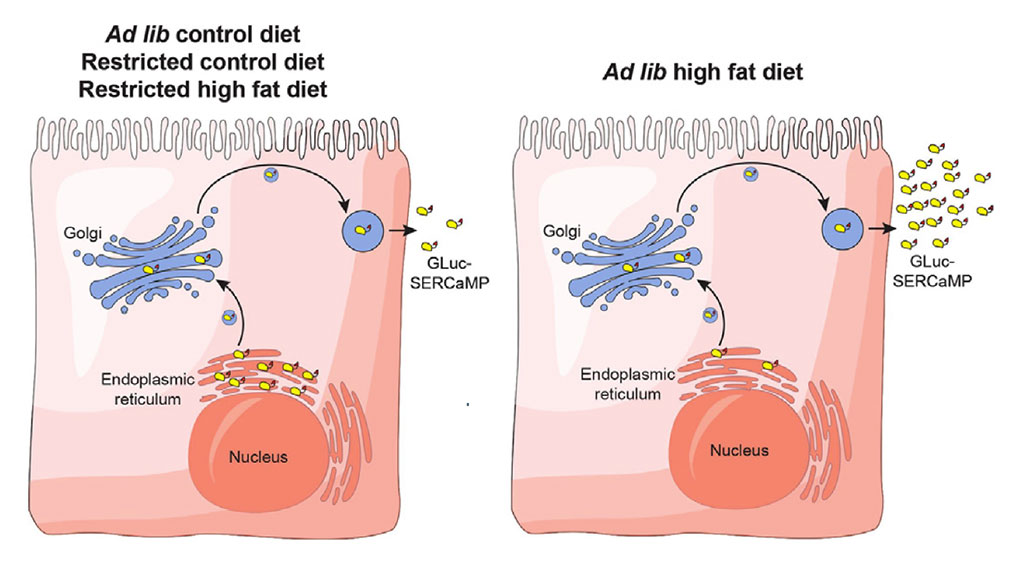Featured Paper of the Month – January 2018.
From the NIDA IRP Molecular Mechanisms of Cellular Stress and Inflammation Section
The endoplasmic reticulum (ER) is cellular organelle that performs critical functions such as the production and processing of proteins, lipids and drugs. The ER also serves as the primary storage site for calcium inside the cell. Using a novel biological sensor protein called GLuc-SERCaMP developed by our laboratory at the NIDA IRP, we show that high fat diets causes changes to ER calcium in the livers of rats. Unrestricted access to high fat food pellets caused molecular changes to regulators of ER calcium and an increase in markers of fatty liver disease. Animals treated with dantrolene, a drug that stabilizes ER calcium, reduced the levels of our sensor and reduced food intake. The study describes a novel technique for liver research and provides insight into cellular processes that may contribute to the pathogenesis of obesity and fatty liver disease.
Publication Information
High fat diet disrupts endoplasmic reticulum calcium homeostasis in the rat liver. Journal Article
In: J Hepatol, vol. 67, no. 5, pp. 1009–1017, 2017, ISSN: 1600-0641 (Electronic); 0168-8278 (Linking).


